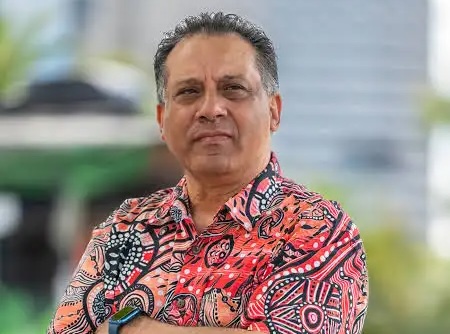Emma Townsend
Loneliness is a widespread problem in Australian society. In a typical week, just over half of all Australians feel lonely on one or more days, and one-third of us experience a high level of loneliness. Further, loneliness is associated with poorer physical and mental health. Despite this, the toll of loneliness is rarely mentioned and its stigma frequently goes unquestioned.
A new podcast series, We Are Lonely, explores this significant issue. A collaboration of broadcaster and writer Myf Warhurst, Melbourne Postdoctoral Fellow and former CAWRI convenor Dr Frederic Kiernan, and Medibank, We Are Lonely looks to undermine loneliness stereotypes and to explore how the arts can foster social connection. Through a series of conversations with well-known artists, We Are Lonely grapples with the concept of loneliness, discussing what it is and how it manifests in popular culture in songs, film, art and books.
We Are Lonely contains five episodes with each episode consisting of an interview by Myf and Fred with a celebrated artist. These artists, in order of podcast appearance, are: actor Hugo Weaving, musicians Briggs, Tash Sultana and Darren Hayes (Savage Garden), and visual artist Patricia Piccinini. Myf provides the broad direction for each interview, with Fred’s background at the intersection of creativity, emotion and wellbeing offering valuable research grounding. There’s a genuine warmth to these discussions and the artists’ responses are generous and illuminating.
A prominent podcast theme is how art can promote social connections, thereby mitigating against loneliness. Patricia Piccinini, for example, talks about the centrality of social bonds in her work, of depicting relationships and creating sculptures that bring people together. Through incongruous depictions of unknown creatures, such as her Skywhale and Skywhalepapa (which are pictured in the header image), she seeks through metaphor to cultivate empathy, and to show us that these beings are not to be shunned or avoided through fear of their difference. Myf provides a beautiful summation of this point at the end of the fifth podcast.
Loneliness’s complexity and the differing kinds of aloneness frequently crop up in these podcasts. The types of aloneness considered range from the nourishment of solitude which can lead to creativity and growth, to the detrimental impacts of alienation and social exclusion. Briggs explains how, as a kid, he felt ostracised due to racism which resulted in feelings of anxiety, but that he didn’t know what the sick feeling he was experiencing was. His track ‘Bad Apples’ encapsulates his ‘white hot rage’ at this exclusion. And this touches on other common podcast threads: the importance of understanding emotions and of being seen and represented.
The capacity for art to ground us is also an ongoing theme, as is its ability to provide a space to imagine our future selves and deep personal connections. Darren Hayes describes his experience of writing ‘I Knew I Loved You’ and how, in this song, he was subconsciously writing about his now husband who, at the time of the song’s writing, he’d never met.
Through the We Are Lonely series of podcast conversations, Myf, Fred, and their guests, along with Medibank, sensitively explore loneliness and how art can aid in cultivating human connections. This is a really timely podcast that elevates the broader societal understanding and profile of this critical contemporary problem.
We Are Lonely is available to stream at Apple Podcasts and Spotify.
Header image of Patricia Piccinini’s Skywhale and Skywhalepapa, Canberra, February 2021: Nick-D, CC BY-SA 4.0<https://creativecommons.org/licenses/by-sa/4.0>, via Wikimedia Commons.
March 2022
Emma Townsend is a Research Assistant at the Creativity and Wellbeing Hallmark Research Initiative (CAWRI), University of Melbourne.





.png)